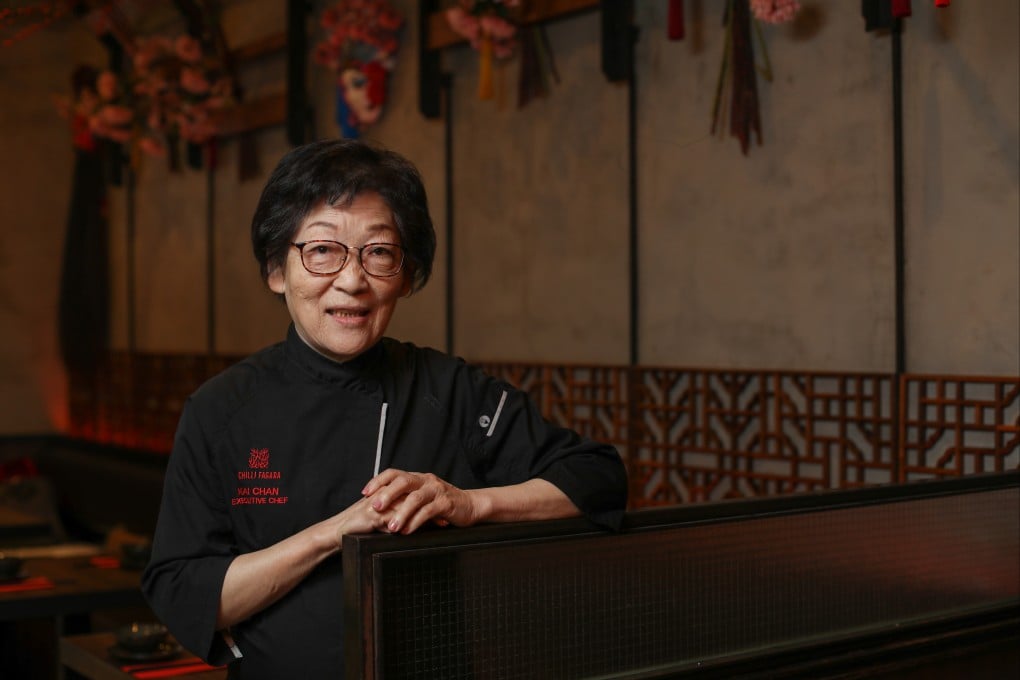Profile | Sichuan chef who taught Cantonese diners to eat spicy food, and why it’s good to eat during the pandemic
- Chan Kai-ying tells Bernice Chan about growing up in Chongqing and helping out in her family’s restaurants before moving to Canada
- She moved back to Hong Kong in 1995, opened Chilli Fagara, and has been heating up the city’s taste buds ever since

What was your childhood like?
“After school, I would help out my parents in the restaurant, cleaning and chopping vegetables, and stealing food to eat [laughs]. I am the oldest of five siblings and I started cooking at home for them when I was 13 years old. I had to stand on a chair to reach the stove. The first dishes I cooked were stir-fried eggs with chilli sauce, mapo tofu, and stir-fried string beans with minced pork. Everyone can eat spicy, though as children we started eating just a bit of chilli. Every dish has some chillies in it, otherwise they don’t have flavour.”
How did you get into cooking?
“My grandfather, uncles and father all opened restaurants. Being in that environment influenced me to cook. I’m the third generation and my children are the fourth. I gradually liked cooking because of growing up in this kind of environment. I didn’t know how to choose something else to do, I just followed my family into this business.

“By the time I was 18 years old, in 1965, I was already helping my father in his restaurant in Chongqing [in southwest China]. I did a bit of everything – mostly when orders came in, I gathered the ingredients for the chef to cook. The restaurant had about 40 seats – not very big.”